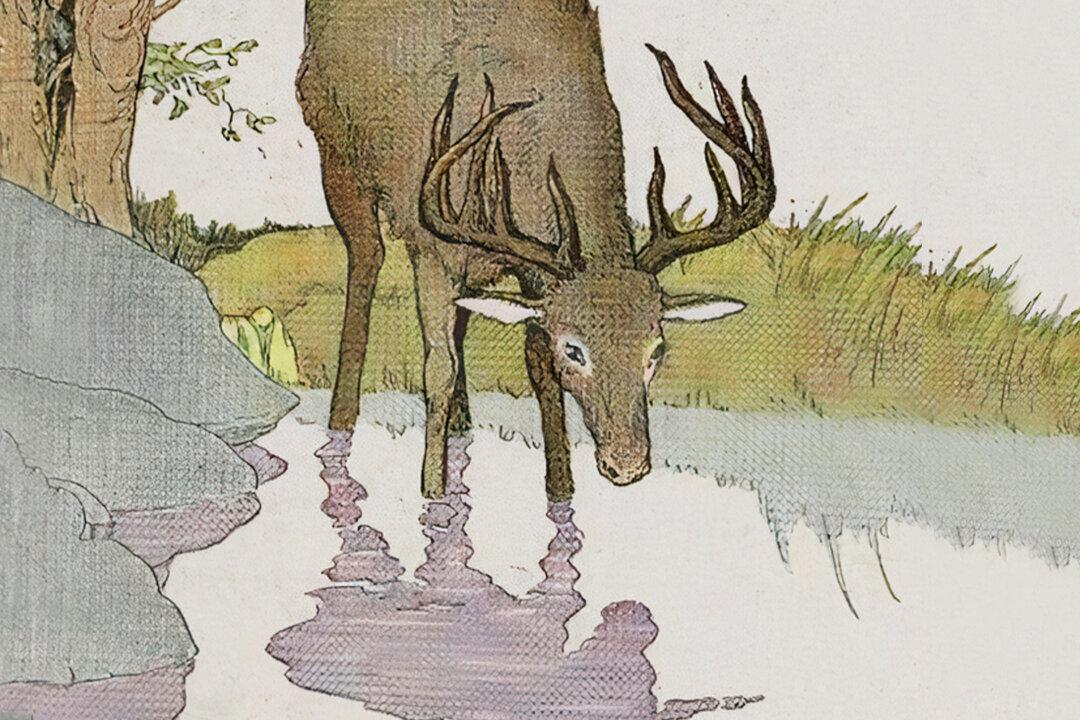A stag, drinking from a crystal spring, saw himself mirrored in the clear water. He greatly admired the graceful arch of his antlers, but he was very much ashamed of his spindling legs.
“How can it be,” he sighed, “that I should be cursed with such legs when I have so magnificent a crown.”






